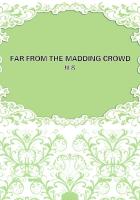Belleisle, Louis XIV., Henri II., Francois I.: it is long since the French have known this state of matters; and been in the habit of breaking in upon it, fomenting internal discontents, getting up unjust Wars,--with or without advantage to France, but with endless disadvantage to Germany. Schmalkaldic War; Thirty-Years War;Louis XIV.'s Wars, which brought Alsace and the other fine cuttings; late Polish-Election War, and its Lorraine; Austrian-Succession War: many are the wars kindled on poor Teutschland by neighbor France; and large is the sum of woes to Europe and to it, chargeable to that score. Which appears even yet not to be completed?--Perhaps not, even yet. For it is the penalty of being loyal to Enchanted Wiggeries; of living cheek-by-jowl with lies of a peaceable quality, and stuffing your nostrils, and searing your soul, against the accursed odor they all have!--For I can assure you the curse of Heaven does dwell in one and all of them; and the son of Adam cannot too soon get quit of their bad partnership, cost him what it may.
Belleisle's Journey as Sun-god began in March,--"end of March, 1741," no date of a day to be had for that memorable thing:--and he went gyrating about, through the German Courts, for almost a year afterwards; his course rather erratic, but always in a splendor as of Belus, with those hundred and thirty French Lords and Valets, and the glory of Most Christian King irradiating him. Very diligent for the first six months, till September or October next, which we may call his SEED-TIME; and by no means resting after nine or twelve months, while the harrowing and hoeing went on. In January, 1742, he had the great satisfaction to see a Bavarian Kaiser got, instead of an Austrian; and everywhere the fruit of his diligent husbandry begin to BEARD fairly above ground, into a crop of facts (like armed men from dragon's teeth), and "the pleasure of the"--WHOM was it the pleasure of?--"prosper in his hands." Belleisle was a pretty man; but I doubt it was not "the Lord" he was doing the pleasure of, on this occasion, but a very Different Personage, disguised to resemble him in poor Belleisle's eyes!--Austria was not dangerous to France in late times, and now least of all; how far from it,--humbled by the loss of Lorraine; and now as it were bankrupt, itself in danger from all the world. And France, so far as express Treaties could bind a Nation, was bound to maintain Austria in its present possessions. The bitter loss of Lorraine had been sweetened to the late Kaiser by that solitary drop of consolation;--as his Failure of a Life had been, poor man:
"Failure the most of me has been; but I have got Pragmatic Sanction, thanks to Heaven, and even France has signed it!" Loss of Lorraine, loss of Elsass, loss of the Three Bishoprics; since Karl V.'s times, not to speak of earlier, there has been mere loss on loss:--and now is the time to consummate it, think Belleisle and France, in spite of Treaties.
Towards humbling or extinguishing Austria, Belleisle has two preliminary things to do: FIRST, Break the Pragmatic Sanction, and get everybody to break it; SECOND, Guide the KAISERWAHL (Election of a Kaiser), so that it issue, not in Grand-Duke Franz, Maria Theresa's Husband, as all expect it will, but in another party friendly to France:--say in Karl Albert of Bavaria, whose Family have long been good clients of ours, dependent on us for a living in the Political World. Belleisle, there is little doubt, had from the first cast his eye on this unlucky Karl Albert for Kaiser;but is uncertain as to carrying him. Belleisle will take another if he must; Kur-Sachsen, for example;--any other, and all others, only not the Grand-Duke: that is a point already fixed with Belleisle, though he keeps it well in the background, and is careful not to hint it till the time come.
In regard to Pragmatic Sanction, Belleisle and France found no difficulty,--or the difficulty only (which we hope must have been considerable) of eating their own Covenant in behalf of Pragmatic Sanction; and declaring, which they did without visible blush, That it was a Covenant including, if not expressly, then tacitly, as all human covenants do, this clause, "SALVO JURE TERTII (Saving the rights of Third Parties),"--that is, of Electors of Bavaria, and others who may object, against it! O soul of honor, O first Nation of the Universe, was there ever such a subterfuge? Here is a field of flowering corn, the biggest in the world, begirt with elaborate ring-fence, many miles of firm oak-paling pitched and buttressed;--the poor gentleman now dead gave you his Lorraine, and almost his life, for swearing to keep up said paling. And you do keep it up,--all except six yards; through which the biggest team on the highway can drive freely, and the paltriest cadger's ass can step in for a bellyful!
It appears, the first Nation of the Universe had, at an early period of their consultations, hit upon this of SALVO JURE TERTII, as the method of eating their Covenant, before an enlightened public. [20th January, 1741, in their Note of Ceremony, recognizing Maria Theresa as Queen of Hungary, Note which had been due so very long (ADELUNG, ii. 206), there is ominous silence on Pragmatic Sanction; "beginning of March," there is virtual avowal of SALVOJURE (ib. 279);--open avowal on Belleisle's advent (ib. 305).]
And they persisted in it, there being no other for them.
An enlightened public grinned sardonically, and was not taken in;but, as so many others were eating their Covenants, under equally poor subterfuges, the enlightened public could not grin long on any individual,--could only gape mutely, with astonishment, on all.















